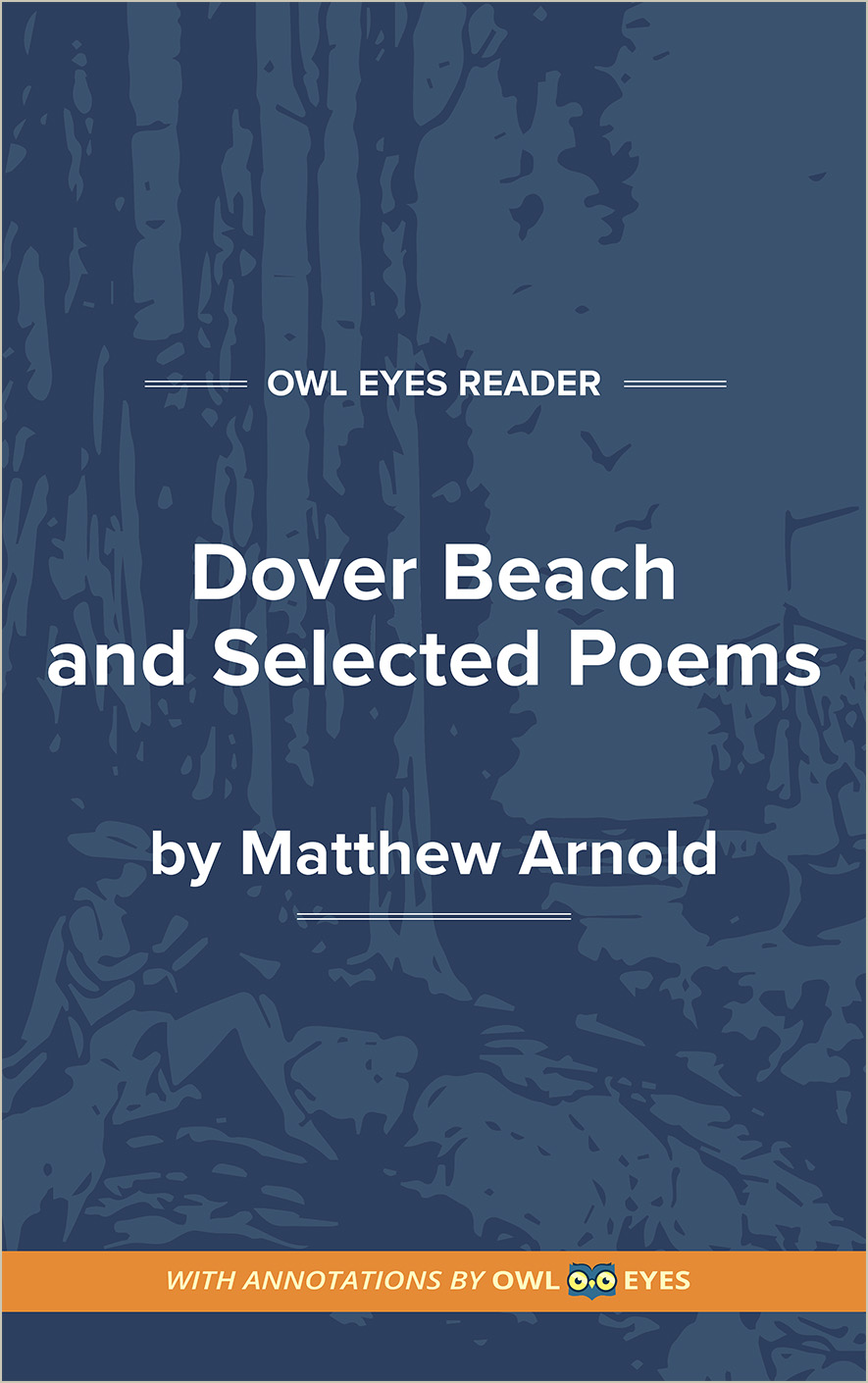Study Guide
Analysis Pages
Summary
“Dover Beach” is a brief, dramatic monologue generally recognized as Arnold’s best—and most widely known—poem. It begins with an opening stanza that is indisputably one of the finest examples of lyric poetry in the English language. The topography of the nocturnal setting is a combination of hushed tranquillity and rich sensory detail. It is the world as it appears to the innocent eye gazing on nature: peaceful, harmonious, suffused with quiet joy. The beacon light on the coast of Calais, the moon on the calm evening waters of the channel, and the sweet scent of the night air all suggest a hushed and gentle world of silent beauty. The final line of the stanza, however, introduces a discordant note, as the perpetual movement of the waves suggests to the speaker not serenity but “the eternal note of sadness.”
The melancholy strain induces in the second stanza an image in the mind of the speaker: Sophocles, the Greek tragedian, creator of Oidipous Tyrannos (c. 429 b.c.e.; Oedipus Tyrannus, 1715) and Antigone (441 b.c.e.; Antigone, 1729) standing in the darkness by the Aegean Sea more than two thousand years ago. The ancient master of tragedy hears in the eternal flux of the waves the same dark note, “the turbid ebb and flow/ Of human misery.” Thus, the speaker, like Sophocles before him, perceives life as tragedy; suffering and misery are inextricable elements of existence. Beauty, joy, and calm are ephemeral and illusory. The speaker’s pessimistic perspective on the human condition, expressed in stanzas two, three, and four, undercuts and effectively negates the positive, tranquil beauty of the opening stanza; the reality subsumes the misleading appearance. In the third stanza, Arnold introduces the metaphor of the “Sea of Faith,” the once abundant tide in the affairs of humanity that has slowly withdrawn from the modern world. Darwinism and Tractarianism in Arnold’s nineteenth century England brought science into full and successful conflict with religion. “Its melancholy, long withdrawing roar” suggested to Arnold the death throes of the Christian era. The Sophoclean tragic awareness of fate and painful existence had for centuries been displaced by the pure and simple faith of the Christian era, a temporary compensation promising respite from an existence that is ultimately tragic.
The fourth and final stanza of “Dover Beach” is extremely pessimistic. Its grim view of reality, its negativity, its underlying desperate anguish are in marked contrast to the joy and innocent beauty of the first stanza. Love, the poet suggests, is the one final truth, the last fragile human resource. Yet here, as the world is swallowed by darkness, it promises only momentary solace, not joy or salvation for the world. The world, according to the speaker, “seems/ To lie before us like a land of...
(The entire page is 695 words.)
Owl Eyes subscribers get unlimited access to our expert annotations, analyses, and study guides on your favorite texts. Master the classics for less than $5/month!

